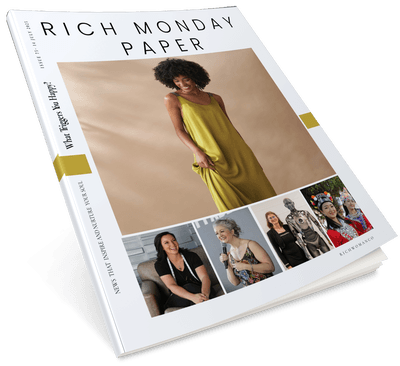The Trap Of External Validation: Trading Social-Comparison for Self- Confidence

We often find ourselves trapped in external validation, evaluating our abilities, achievements, and even our appearance against others around us. Characterized by a constant need for reassurance and approval from others, it can be traced back centuries as a result of social conditioning. At its core, this phenomenon involves the tendency to compare ourselves to others instead of focusing on our personal growth and worth.
In this article, we will delve into the historical roots of social conditioning and explore the science behind the impact of external validation on our well-being, while shedding light on the importance of remembering how far you came already. We invite you to explore an insightful perspective into why we engage in these comparisons and how breaking free from the external valuation trap could impact our self-confidence and well-being in a positive way.

Understanding social comparison and the science behind self-confidence
Social Comparison Theory was first proposed by psychologist Leon Festinger in 1954. According to Festinger, individuals have a natural drive to evaluate themselves in contract to others to gain an accurate understanding of their abilities and opinions. This process can take two forms: upward comparisons, where we compare ourselves to someone we perceive as better off, and downward comparisons, where we compare ourselves to someone we perceive as worse off.
There are powerful reasons to break free from external validation and discover your true worth:
Self-evaluation: Comparing yourself to others is limiting your self- beliefs, your abilities, and aspirations, providing fractured information about your strengths, weaknesses, and areas where your unique talent is concern.
Self- awareness: breaking free from external validation can boost your self-esteem by making you feel better about your circumstances, skills, or accomplishments in contrast to who you were a few years ago.
Understanding how far you’ve come by comparing yourself to who you were a few years ago, rather than contrasting yourself with others, offers a more meaningful and accurate perspective on your personal growth and true worth. By embracing self-comparison and reflecting on our individual journey, you can cultivate self-awareness, improve our self-esteem, and nurture your intrinsic motivation to continue growing and thriving. In doing so, you empower yourself to live more authentic, fulfilled life, driven by your own values, aspirations, and accomplishments.
The Impact of Self-Comparison on Well-being
While self-comparison can have some positive effects, such as motivation for self-improvement, it can also negatively impact our mental health and self-esteem. Constantly comparing ourselves to others can lead to feelings of inadequacy, envy, and even depression. Social media has exacerbated this issue, making it easier than ever to engage in harmful comparisons that may not accurately reflect reality.
Trading social-comparison for personal confidence
To harness the power of self-comparison for personal growth while minimizing its potential negative effects, consider the following strategies:
Be mindful of your comparisons: Recognize when you’re engaging in social comparison and evaluate whether the comparison is constructive or detrimental to your well-being.
Focus on self-discovery: Instead of engaging in comparisons that may undermine your self-esteem, seek out opportunities to learn about your unique talents and grow personally and professionally.
Limit exposure to harmful comparisons: Reducing time spent on social media platforms that promote unrealistic comparisons can help maintain a healthier self-perception.
Cultivate gratitude and self-compassion: Practicing gratitude and self-compassion can help counter the negative effects of self-comparison and encourage a more positive outlook on your abilities and circumstances. Being mindful of how and why we engage in self-comparison, we can harness its potential for personal growth while mitigating its negative effects on our well-being.

Escaping the trap of external validation to rebuild self-trust and embrace authenticity
External validation is a double-edged sword. While it can provide reassurance and boost our confidence in the short term, it can also become a dangerous trap that undermines self-trust and self-worth. As we grow from vulnerable, dependent children into independent adults, it is crucial to recognize and overcome our reliance on external validation, which can make us susceptible to manipulation and hinder our personal growth.
The Roots of External Validation and the Loss of Self
From the moment we are born, our lives are shaped by the need for validation from our caregivers. As infants, our survival hinges on receiving love, care, and attention from those around us. However, this early dependence on external validation can sometimes leave lasting emotional scars. As we navigate the complexities of childhood, we may experience rejection, invalidation, or emotional harm that leaves us with a deep-seated need for external approval.
When this need for external validation remains unaddressed, it can hinder our ability to form a healthy self-perception and trust in our abilities. Consequently, we become increasingly vulnerable to the influence of others, which makes us susceptible to manipulation and fosters a pattern of manipulative behavior in our own lives.
Breaking Free from the Trap of External Validation
To escape the trap of external validation and rebuild self-trust, consider the following steps:
Practice self-awareness: Acknowledge and reflect on your need for external validation. Recognize the moments when you seek approval or validation from others, and question the underlying motivations behind these actions.
Cultivate self-compassion: Embrace a kinder, more compassionate attitude towards yourself. Recognize that you, like everyone else, are deserving of love, care, and respect, regardless of the judgments and opinions of others.
Develop a strong sense of self: Work on building a clear, well-defined understanding of who you are, your values, and your goals. This will allow you to trust yourself and make decisions independently, without relying on external validation.
Foster healthy relationships: Seek out connections with people who genuinely support and uplift you, rather than those who may manipulate or exploit your vulnerability.
Set personal boundaries: Establish and maintain clear boundaries that protect your emotional well-being and prevent others from exerting undue influence over you.
Engage in self-exploration and personal growth: Invest time and energy into exploring your own thoughts, emotions, and experiences to develop a stronger sense of self and greater resilience against the need for external validation.
Overcoming the trap of external validation requires a deep commitment to self-awareness, self-compassion, and personal growth. By recognizing the roots of our need for validation and taking steps to nurture a strong sense of self, we can break free from the grip of external approval and foster a more authentic, trusting relationship with ourselves. In doing so, we empower ourselves to lead fulfilling lives that are guided by our own values, beliefs, and aspirations, rather than the judgments and expectations of others.
Do you want to share your story and inspire our readers ? Know that every story is paving the way for a brighter, happier future.





